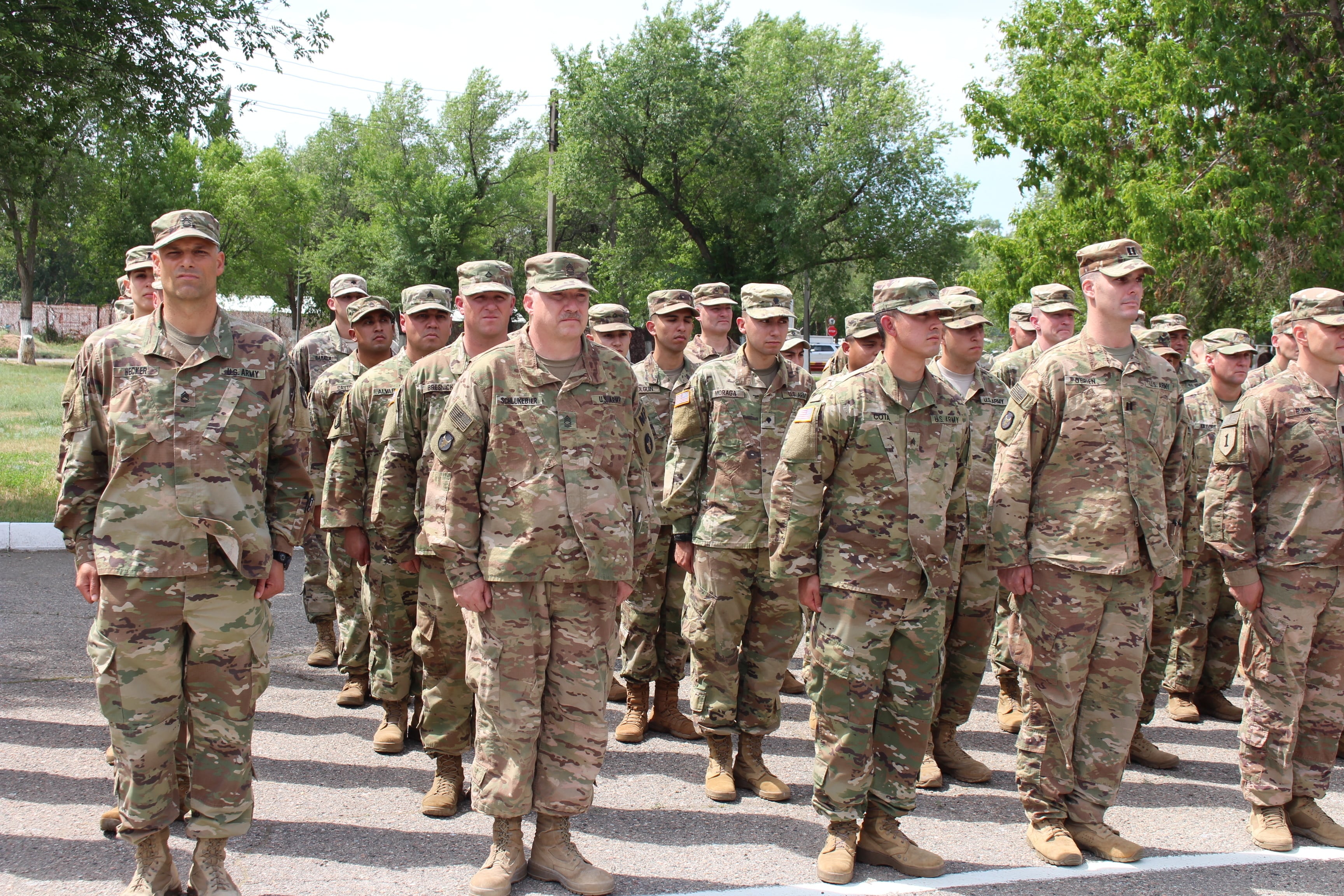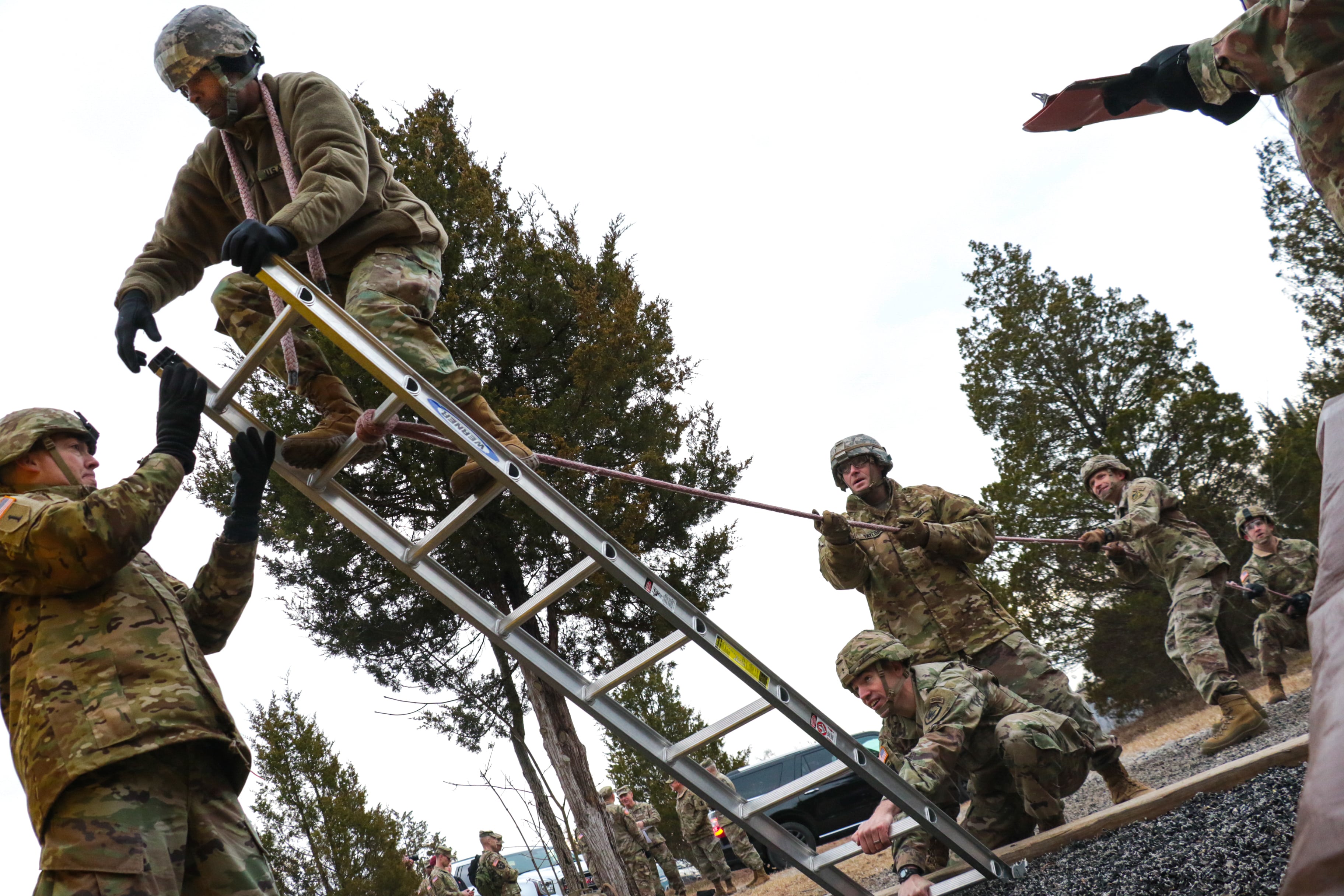The Army has found a wholesale method for measuring the leadership potential of more than 800 mid-career officers to see if they have what it takes to command a battalion of soldiers.
Beginning in January and running through early February, 18 groups of more than 40 candidates will going through a five-day gauntlet at Fort Knox, Kentucky — the Battalion Commander Assessment Program.
The new approach marks a “transformational change” in how the Army identifies leaders at one of the most critical positions in the service, Army Chief of Staff Gen. James McConville told reporters in a video conference from Fort Knox on Thursday.
RELATED

McConville said that battalion commander is one of “the most consequential leaders in the Army,” saying he would argue that the commander has a high impact on whether subordinate soldiers continue to serve or not.
The previous method involved a board of 25 officers reviewing 1,000 or more applicants, spending perhaps minutes on each packet.
Rather than simply being reviewed by a standard board in a matter of minutes based on their higher command’s commendation of their ability to take over one of the most critical leadership positions in the Army, the candidates will now be subject to an array of measures.
First, each will have to pass that traditional mark by being recommended in the first place. Upon arrival at the Battalion Commander Assessment Program, they’ll be measured for height-weight standards and given an Army Physical Fitness Test. If they fail either of those initial measures, they’re out.
Assuming they pass, however, they will spend time with an Army operational psychologist, go through a leader reaction course, read and write an argumentative essay and need to pass an online writing test.
The Army brought in 35 “operational psychologists,” a combination of uniformed officers and civilian contractors, who’ve worked with special operations forces assessments, to identify attributes and traits that they find contribute to leadership potential, said Maj. Gen. J.P. McGee, director of the Army Talent Management Task Force. There is also a cognitive/non-cognitive test that’s been used in the past for the Army to identify officers with strategic potential.
The candidates will also go through a “blind board” in which one major general, two brigadier generals and two former brigade commanders review the candidate with a sergeant major providing input to the panel. "Blind” in this case means that the candidate stands on the opposite side of a hanging sheet during the review and background paperwork that the board sees is scrubbed of personally identifying information.
Of the more than 800 who both qualified for and sought a battalion commander position this year, about 450 will be placed on the primary list for commands as they open in the coming year.
A battalion commander typically serves about two years in that position.
Remaining candidates who are also considered “ready for command” will be placed on an alternate list. That will be used in case a candidate on the primary list changes their mind, gets injured or other circumstances prevent that person from assuming command on schedule.
For those who are deemed not ready for command and for those left on the alternate list, they’ll have the option to repeat the BCAP next year. An Army officer gets three chances to achieve a battalion command position before they would no longer be considered.
Every candidate will get a 30-minute exit interview, letting them know the general areas that need improvement if they do the BCAP again.
McConville said that over time, some of that will be incorporated in earlier training. For instance, part of the evaluation process also includes survey results from both peers and subordinates.
McGee said nearly three-quarters of the 23,000 surveys they sent out received responses. That’s compared to a typical return rate of about 10 percent for most surveys, which means each candidate had an estimated two dozen or more peers or subordinates providing feedback on their leadership abilities.
The broad strokes of that feedback will also be briefed to the candidate, so if there’s a trend, they can make adjustments.
McConville noted that the goal will be to find ways to assess officers even earlier in their careers on portions of the evaluations so they can correct any bad habits or address gaps in their leadership styles.
Both generals deferred on if or when the Army might expand a BCAP-style assessment to other positions such as command sergeant major or brigade commander.
McConville noted that leadership at various positions isn’t “one-size-fits-all.” What makes a great staff officer, such as a battalion or brigade operations officer, might not be the same set of skills or attributes that makes for a good commander.
“Anytime you get feedback from your subordinates and peers, that’s always a good thing…honest feedback,” said Sergeant Major of the Army Michael Grinston who visited the BCAP as it kicked off, according to an Army statement.
In October, McGee shared with Army Times early takeaways from the pilot program that ran in summer 2019.
That event took place at Fort Benning, Ga., and for that test, 23 candidates that made the alternate list for the year volunteered to run through a two-day version of what has since become BCAP.
The BCAP is a significant change to how the Army evaluates future leaders, but it is also part of a “culture of assessments” that the Army wants to pursue.
McGee pointed out that recently the Army’s captains course began requiring students to take the Graduate Record Examination, which helps the service determine which soldiers might have success at higher-education schools later in their careers.
Todd South has written about crime, courts, government and the military for multiple publications since 2004 and was named a 2014 Pulitzer finalist for a co-written project on witness intimidation. Todd is a Marine veteran of the Iraq War.




